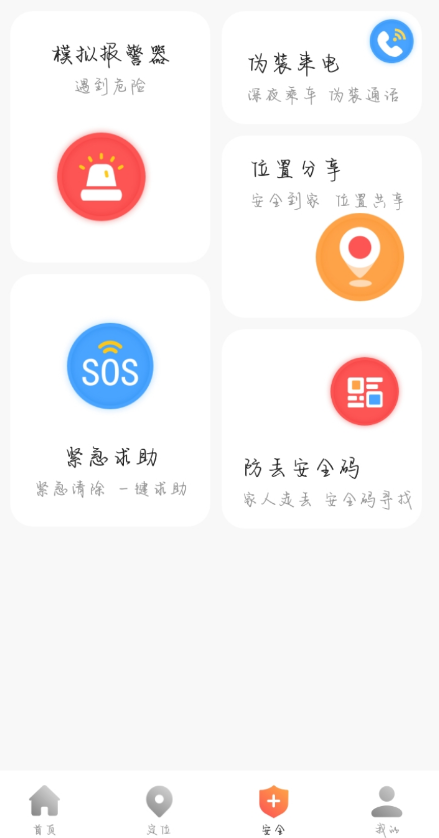下面由thinkphp教程栏目给大家介绍thinkphp5 instance 的简单实现方法,希望对需要的朋友有所帮助!

最近学习 ThinkPHP5,第一次看到 TestClass::instance() 就能创建 TestClass 实例的方法。感到很好奇,翻阅 ThinkPHP 的源代码,大体理解了 它的 设计思想,非常的先进。
再次从零造车一次(昨天的造车:angularjs的数组传参方式的简单实现http://www.miaoqiyuan.cn/p/an…),来讲讲 他的 具体实现。本文(thinkphp5 instance 的简单实现)为原创文章,原文地址:http://www.miaoqiyuan.cn/p/ph…,转载请注明出处。
老规矩,直接上代码:
立即学习“PHP免费学习笔记(深入)”;
<?php class TestClass { public static function instance() { return new self(); } public $data = []; public function __set($name, $val) { return $this->data[$name] = $val; } public function __get($name) { return $this->data[$name]; } } $app1 = TestClass::instance(); $app1->key = 'Application 1'; echo $app1->key . '<br />'; ?>
为了方便调用,也模仿 ThinkPHP 写了一个助手函数
<?php function app() { return TestClass::instance(); } $app2 = app(); $app2->key = 'Application 2'; echo $app2->key . '<br />'; ?>
这样就简单的实现了 instance。
不过这种方法还有一个小问题,试想以下,调用100次,就需要创建100个实例,想想都觉得可怕。
给 Test 类 增加一个 静态属性,将创建的实例保存到这里。下次如果需要调用,则直接调用这个实例。
<?php class TestClass { public static $instance; //用于缓存实例 public $data = []; public static function instance() { //如果不存在实例,则返回实例 if (empty(self::$instance)) { self::$instance = new self(); } return self::$instance; } public function __set($name, $val) { return $this->data[$name] = $val; } public function __get($name) { return $this->data[$name]; } } function app($option = []) { return TestClass::instance($option); } header('content-type:text/plain'); $result = []; $app1 = app(); $app1->key = "Application 1"; //修改 key 为 Application 1 $result['app1'] = [ 'app1' => $app1->key, //实例中 key 为 Application 1 ]; // 创建 app2,因为 instance 已经存在实例,直接返回 缓存的实例 $app2 = app(); $result['app2'] = [ 'setp1' => [ 'app1' => $app1->key, // Application 1 'app2' => $app2->key, //因为直接调用的实例的缓存,所以 key 也是 Application 1 ], ]; // 无论 app1,app2 都对在内存中 对应的同一个实例,无论通过谁修改,都能改变值 $app1->key = "Application 2"; $result['app2']['setp2'] = [ 'app1' => $app1->key, // Application 2 'app2' => $app2->key, // Application 2 ]; print_r($result); ?>
通过上边的实验,可以看到 无论调用多少次,都会使用同一个实例。这样就解决了效率低的问题。
到现在基本就满足大多数情况了,唯一的小缺陷,就是 可能 实例的 初始参数不同,这样没法灵活调用(常见的比如同一个程序调用两个数据库)。在 上边的 例子中稍作改造,以传入的参数为key,将不通的 实例缓存到数组中 就可以解决。
<?php class TestClass { public static $instance = []; //用于缓存实例数组 public $data = []; public function __construct($opt = []) { $this->data = $opt; } public static function instance($option = []) { // 根据传入的参数 通过 serialize 转换为字符串,md5 后 作为数组的 key $instance_id = md5(serialize($option)); //如果 不存在实例,则创建 if (empty(self::$instance[$instance_id])) { self::$instance[$instance_id] = new self($option); } return self::$instance[$instance_id]; } public function __set($name, $val) { return $this->data[$name] = $val; } public function __get($name) { return $this->data[$name]; } } function app($option = []) { return TestClass::instance($option); } header('content-type:text/plain'); $result = []; //传入 初始数据 $app1 = app(['key' => '123']); $result['init'] = $app1->key; // 使用 传入的数据,即:123 $app1->key = "app1"; $result['app'] = $app1->key; // 现在值改为了 自定义的 app1了 print_r($result); $result = []; // 创建 app2,注意 初始参数不一样 $app2 = app(); // 因为初始参数不一样,所以还是创建新的实例 $app2->key = "app2"; $result['app1'] = $app1->key; // app1 $result['app2'] = $app2->key; // app2 print_r($result); $result = []; // 创建 app3,传入的参数 和 app1 一样,所以会直接返回 和app1相同 的 实例 $app3 = app(['key' => '123']); $result['log'] = [ 'app1' => $app1->key, // app1 'app2' => $app2->key, // app2 'app3' => $app3->key, // app1 ]; // 设置 app3 的key,会自动修改 app1 的值,因为他们两个是同一个实例 $app3->key = 'app3'; $result['app3_set'] = [ 'app1' => $app1->key, // app3 'app2' => $app2->key, // app2 'app3' => $app3->key, // app3 ]; // 同理,设置 app1 的key,app3 的 key 也会修改 $app1->key = 'app1'; $result['app1_set'] = [ 'app1' => $app1->key, // app1 'app2' => $app2->key, // app2 'app3' => $app3->key, // app1 ]; print_r($result); ?>
© 版权声明
文章版权归作者所有,未经允许请勿转载。
THE END















